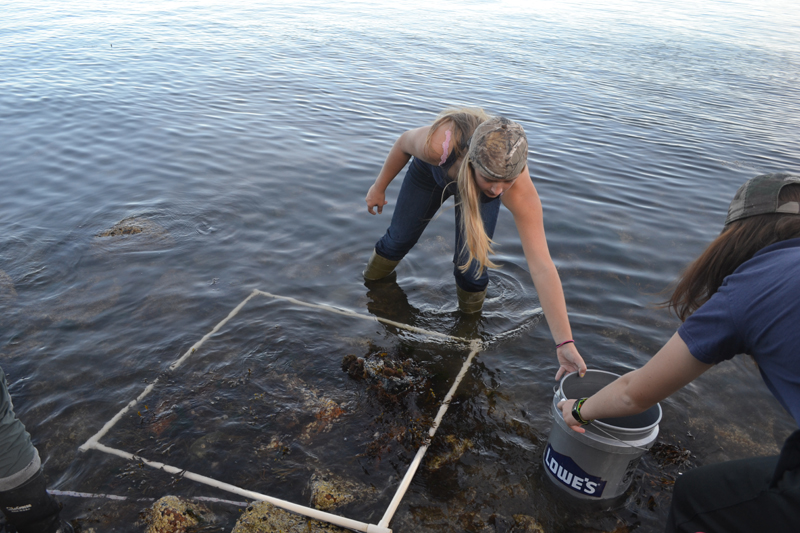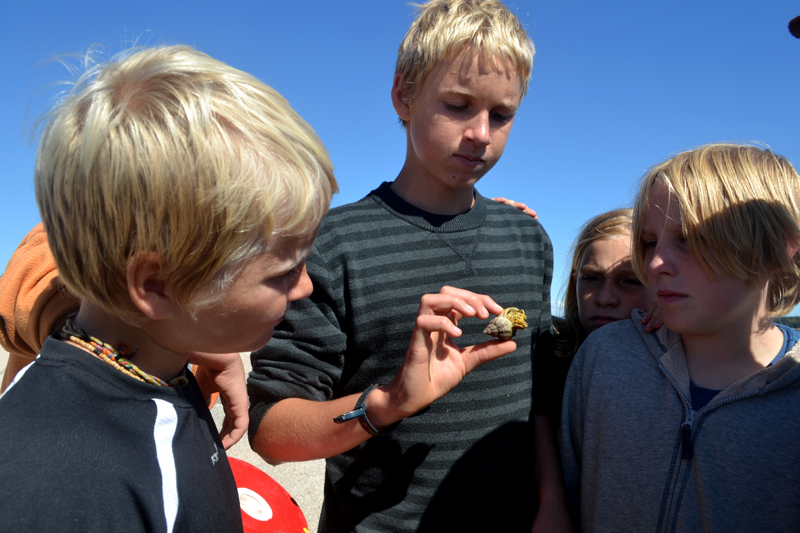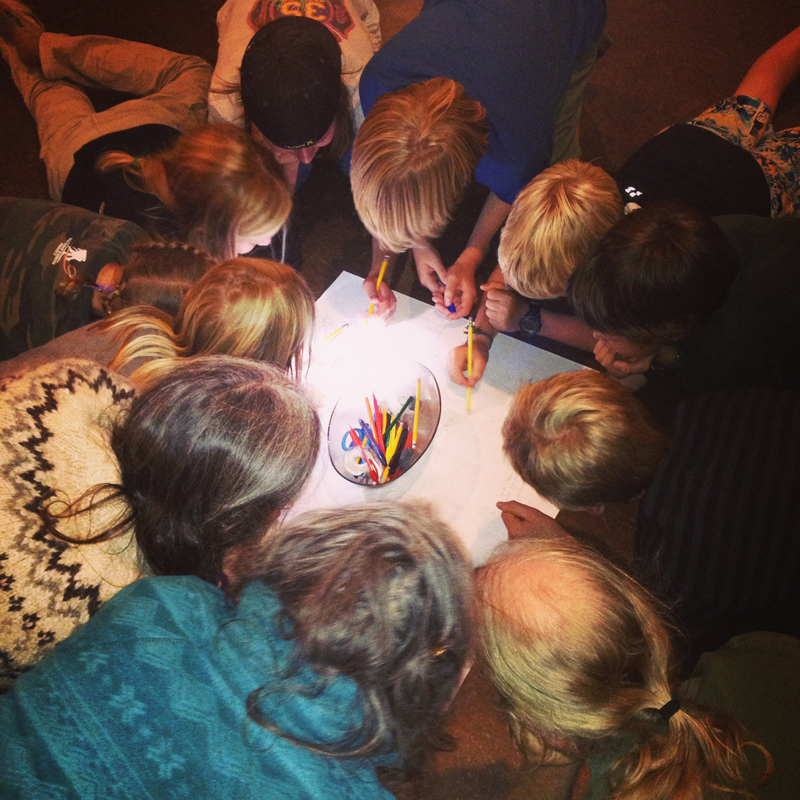Students try their hand at carving granite
In mid June seventh grade students from Vinalhaven sponsored by the Vinalhaven Land Trust came out to Hurricane for a two-day exploration of the island and its history. Educators Alice Anderson, Josie Gates, and Oakley Jackson led students in a history hike around the island, talking about different important historical spots and helping students create a picture of what quarrying looked like on Hurricane over a century ago. Despite Hurricane’s close proximity to Vinalhaven, only one student had visited the island before, but several had family members who had lived and quarried on Hurricane.
The evening on island was filled with learning about sustainable energy and how Hurricane strives to operate as its own sustainable island community. Being from Vinalhaven the students already had great insight as to the efforts, triumphs, and struggles it takes to live on a small island in Maine. Students also participated in leadership activities and games, and had possibly the best strategy the Hurricane staff has ever seen to complete the Helium Stick challenge. They executed great communication and teamwork!
VH students sit in at the foundation of the old catholic church and make observations and educated guesses about what else might have been in this area during the quarry era
After a cozy night spent in our new bunkhouse, students spent the morning learning about Leave No Trace ethics and principles. They played a game identifying proper durable surfaces to camp and hike on, practiced digging a cat hole, and made up fun skits about different LNT principles to act out for their classmates. After lunch they played a game of Island Jeopardy, which put them to the test to remember facts and information that they had learned during their time on Hurricane. They all did a great job! Thanks for joining us on Hurricane Vinalhaven seventh graders; it’s always a joy to host other islanders. Happy summer vacation!












